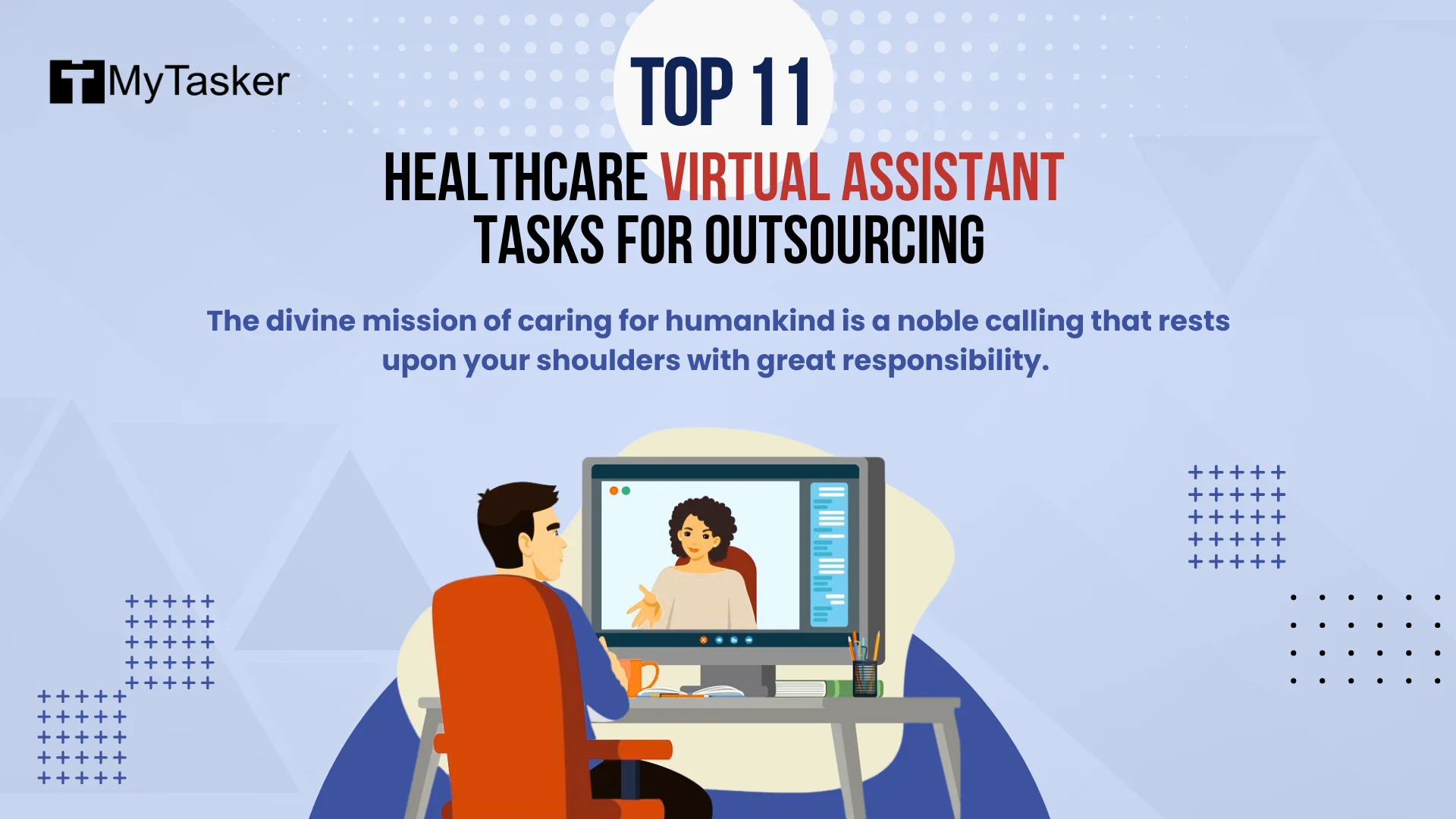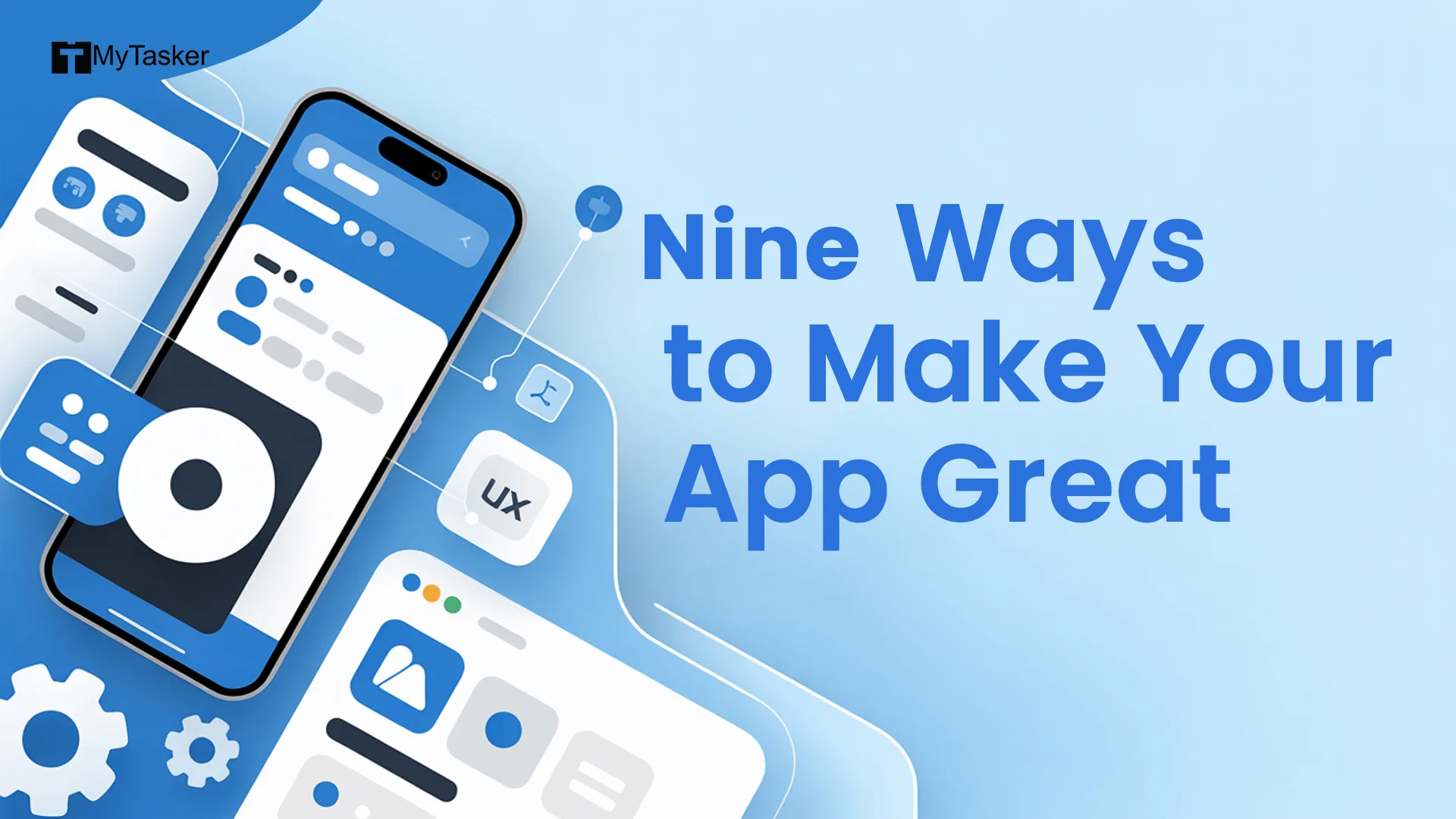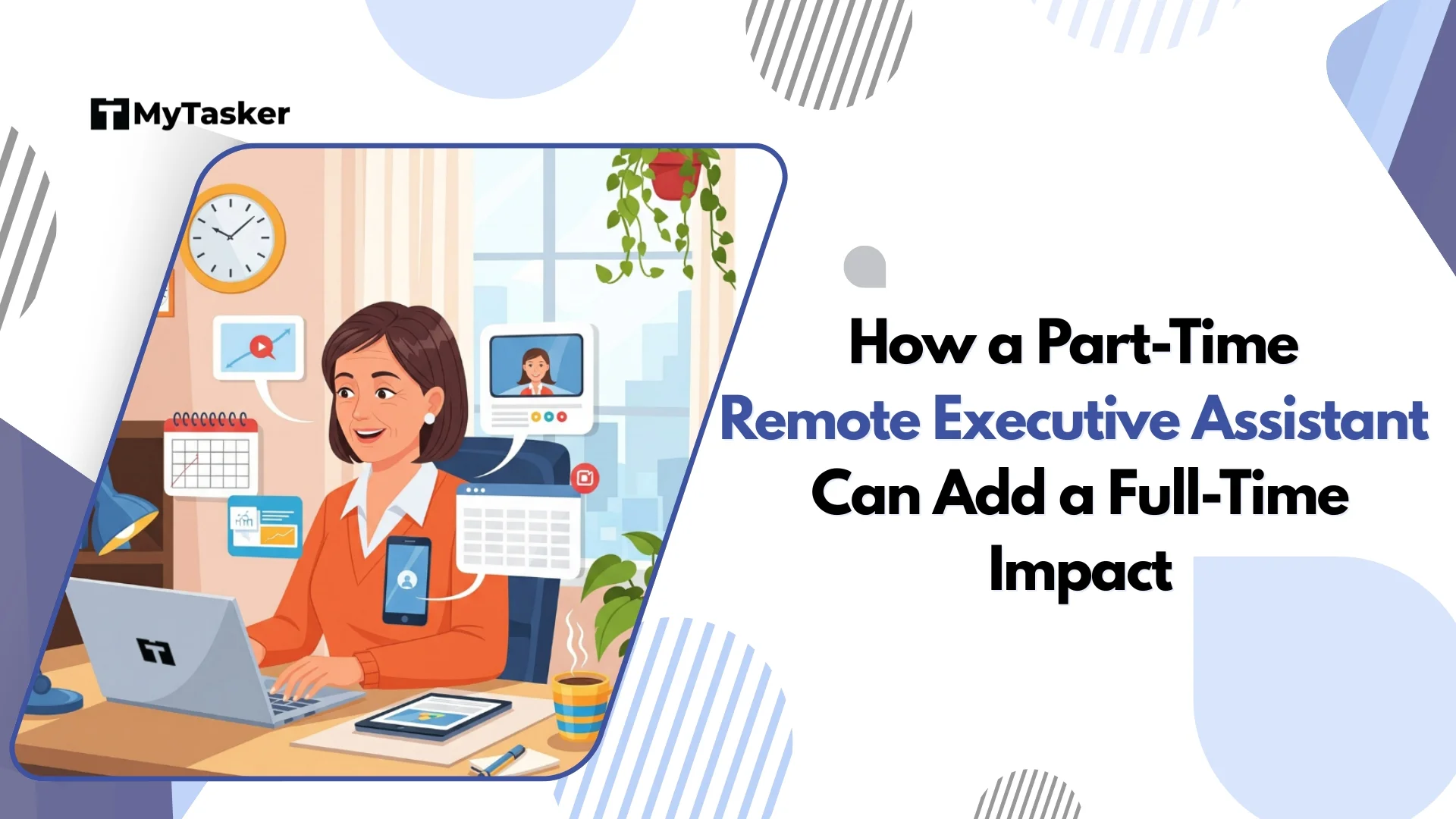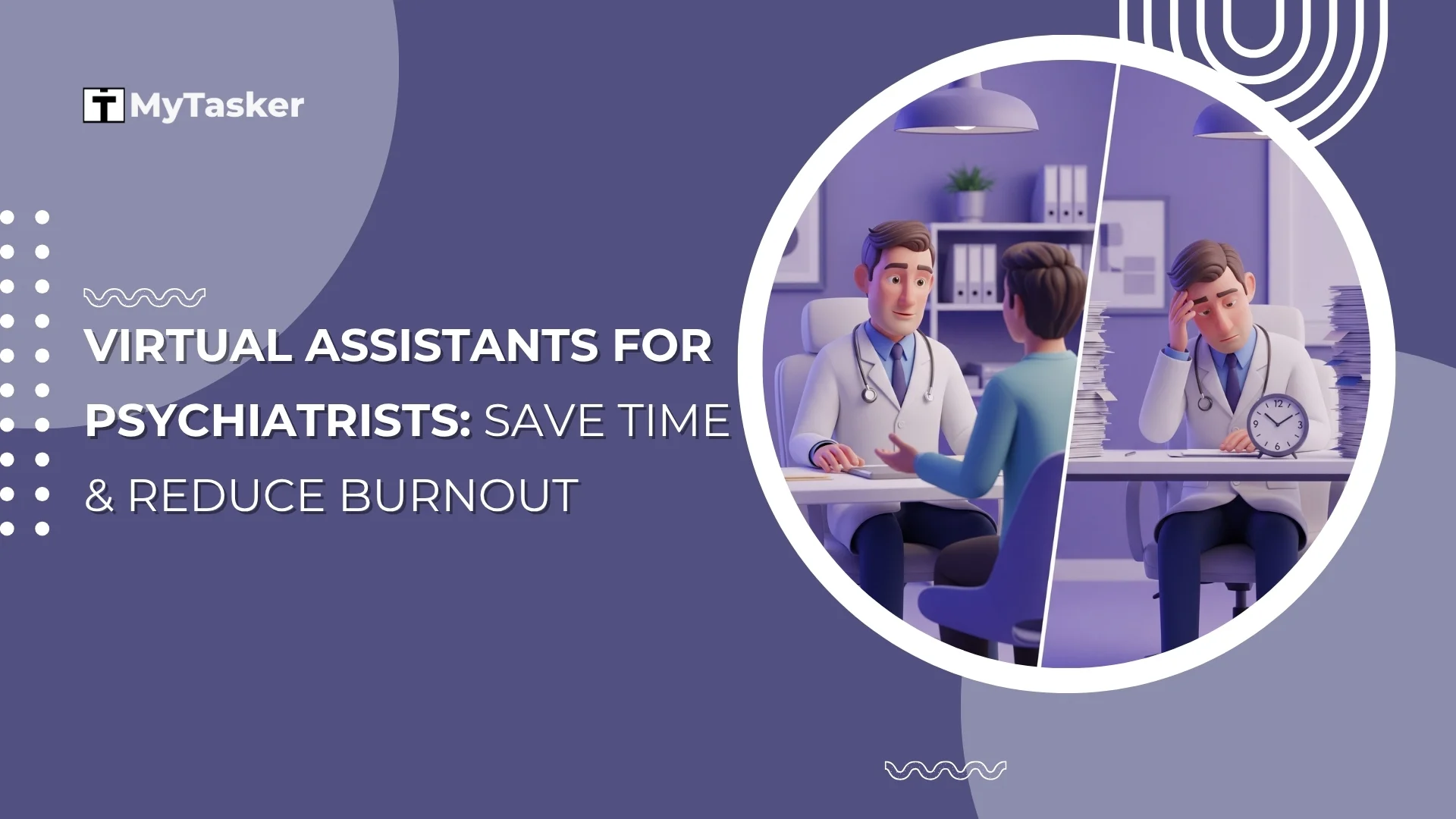The divine mission of caring for humankind is a noble calling that rests upon your shoulders with great responsibility. But is there anyone to shoulder the weight of the countless administrative tasks that come with this sacred duty? The demands of providing healthcare services can prove to be stressful, leaving little room for personal well-being or a focus on the very thing that matters most—your patients.
However, you need not despair. Healthcare virtual assistants (HVAs) are here for your support, offering a way to lighten your load. By outsourcing mundane, time-consuming administrative tasks, you can utilize to the fullest extent the precious time needed to focus on patient care, reduce burnout, and enhance your personal and professional life.
Why Healthcare Providers Need Virtual Assistants
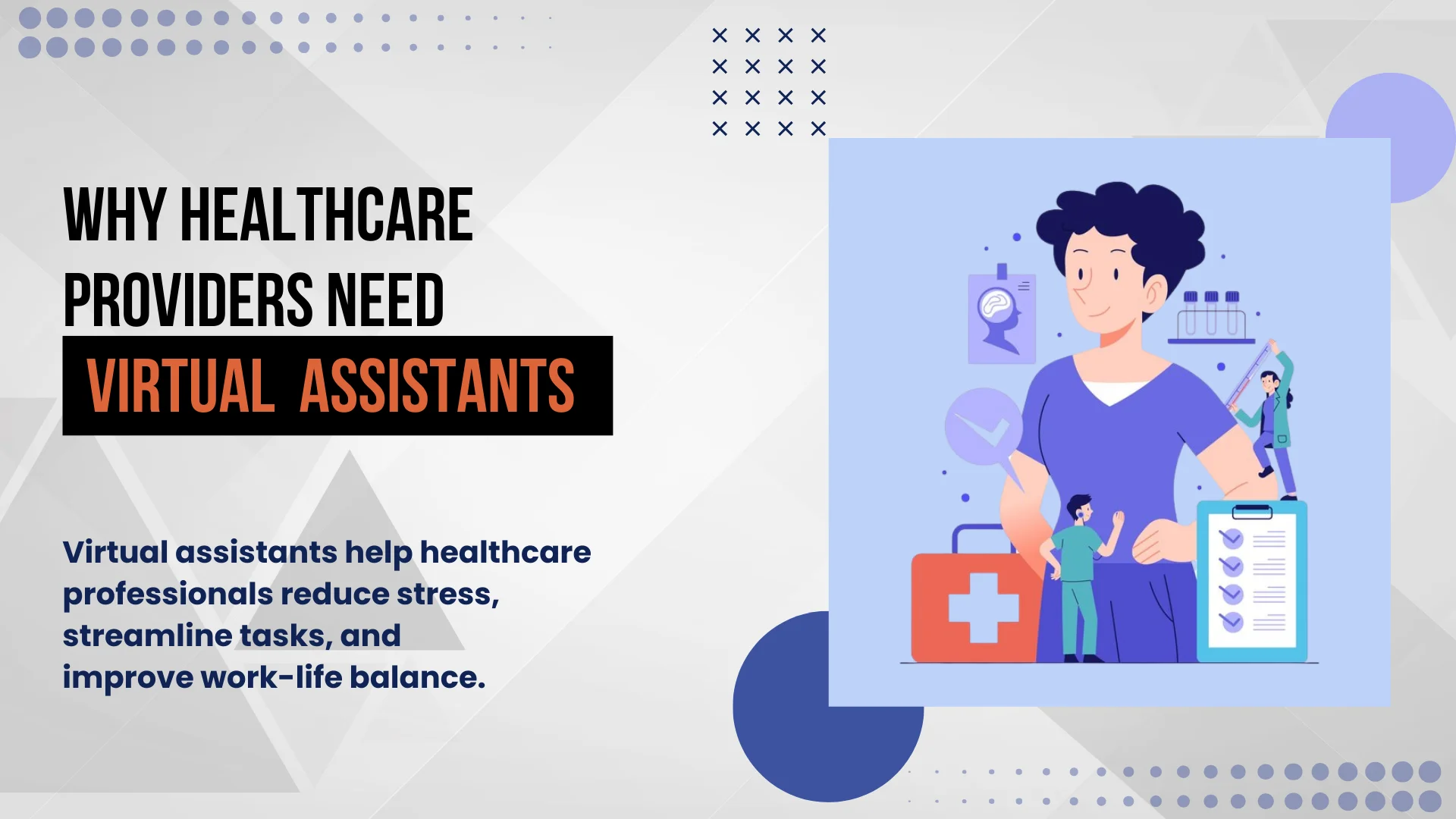
It is not an overstatement to say that Healthcare is inherently demanding, with providers typically working 40 to 60 hours a week. This workload can result in physical and emotional stress, fatigue, and even errors in patient care. By capitalizing on virtual assistants, healthcare professionals can reduce the strain of administrative responsibilities, streamline operations, and foster a more balanced, productive work-life dynamic.
Key Tasks to Outsource to Healthcare Virtual Assistants
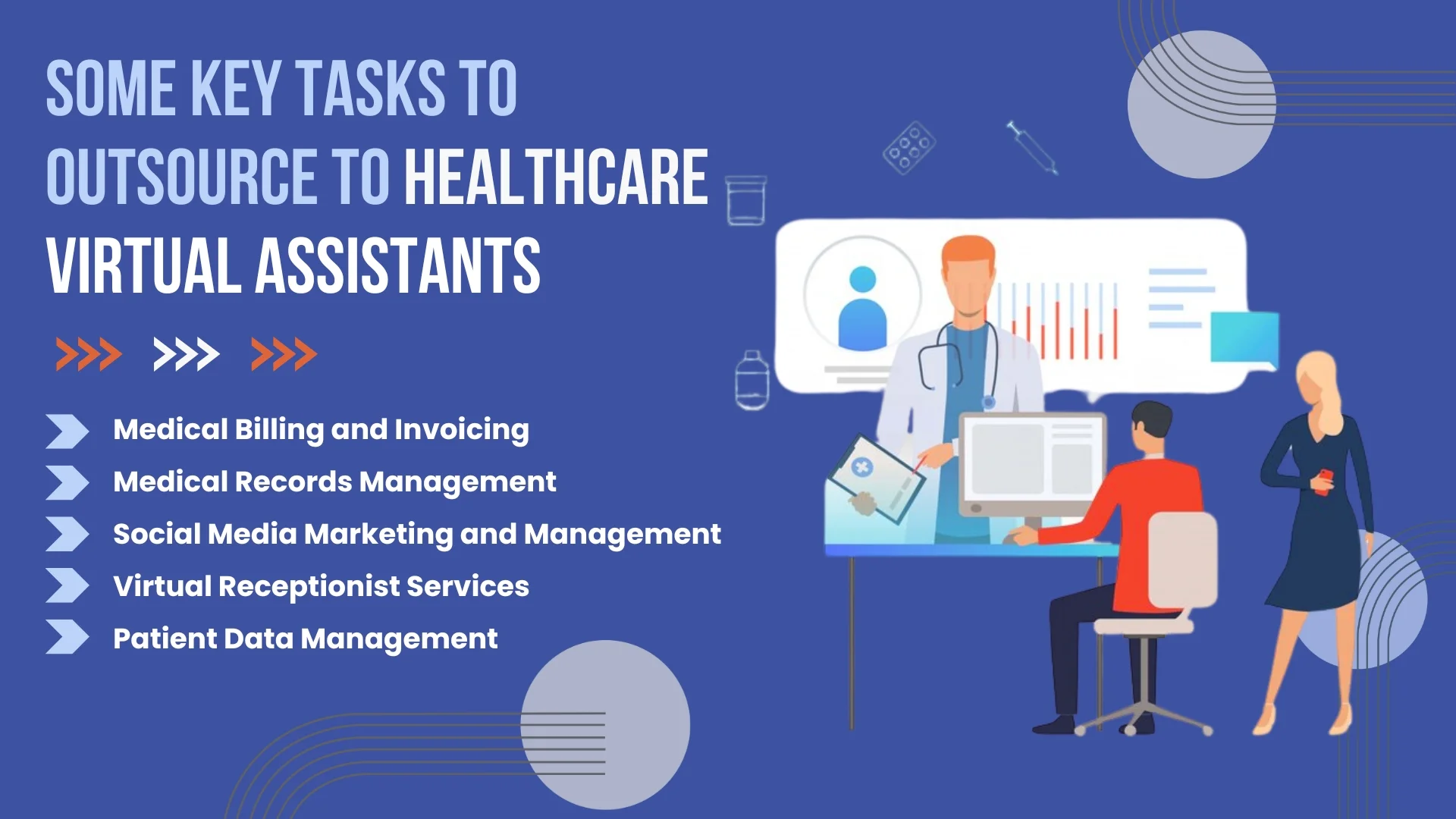
Calendar Management and Scheduling
Healthcare professionals are often tasked with managing complex, high-volume schedules. A virtual assistant can handle appointment bookings, scheduling follow-up visits, and procedures, ensuring your calendar is efficiently organized. Proactive reminders for appointments further reduce no-show rates and cancellations, allowing you to optimize your time.
Medical Billing and Invoicing
Medical billing is often an administrative burden, fraught with potential errors and delays. Virtual assistants can take over insurance claims, track payments, and ensure accurate invoicing. By automating this process, you reduce errors and maintain consistent cash flow, allowing you to focus more on patient care.
Email Management
In today’s fast-paced world, healthcare providers are inundated with a multitude of emails. Virtual assistants can help you stay organized by prioritizing communications, responding to routine inquiries, and scheduling meetings. This reduces the cognitive load, allowing you to maintain a clear focus on your core responsibilities.
Online Medical Research
Staying abreast of the latest medical research and treatment guidelines is essential for informed clinical decision-making. A virtual assistant can conduct this research on your behalf, summarizing new studies, treatments, and drug information, ensuring that you remain at the forefront of medical advancements without the time-consuming effort of managing this process personally.
Medical Records Management
Patient record accuracy is critical in maintaining high standards of care. Virtual assistants ensure that records are up-to-date, organized, and securely stored in compliance with HIPAA and other regulations. With quick access to vital patient information, your practice runs smoothly, ensuring seamless care and better patient outcomes.
Social Media Marketing and Management
In an increasingly digital world, maintaining an effective online presence is vital for patient engagement and trust. Virtual assistants can manage your social media platforms by creating informative, engaging content, responding to patient inquiries, and fostering an online community that promotes your practice.
Virtual Receptionist Services
A virtual assistant can function as a remote receptionist, answering patient calls, scheduling appointments, verifying insurance, and handling prescription refill requests. This ensures smooth communication and operations, which enhances patient satisfaction and reduces the burden on your in-office staff.
Insurance Verification
Insurance verification is a time-consuming yet essential task. Virtual assistants can streamline this process by verifying patient insurance details before appointments, ensuring that all necessary information is in place for a smooth visit, and preventing delays in care.
Patient Data Management
Managing patient data efficiently and securely is critical for providing quality care. Virtual assistants handle medical transcription, coding data entry, and record updates, ensuring that patient information is accurate and accessible in real time, thus supporting clinical decision-making and enhancing patient outcomes.
Administrative Tasks and Office Support
From document preparation to office coordination, virtual assistants can support various administrative tasks, reducing overhead costs and allowing in-house staff to focus on more critical patient-facing duties. This optimizes the practice's overall efficiency.
Prescription Management
Prescription management can be streamlined by a virtual assistant who monitors refill requests, coordinates with pharmacies, and ensures timely medication delivery. By managing this process, virtual assistants help to reduce delays, ensuring that your patients’ medication needs are met promptly and accurately.
The Key Benefits of Healthcare Virtual Assistants
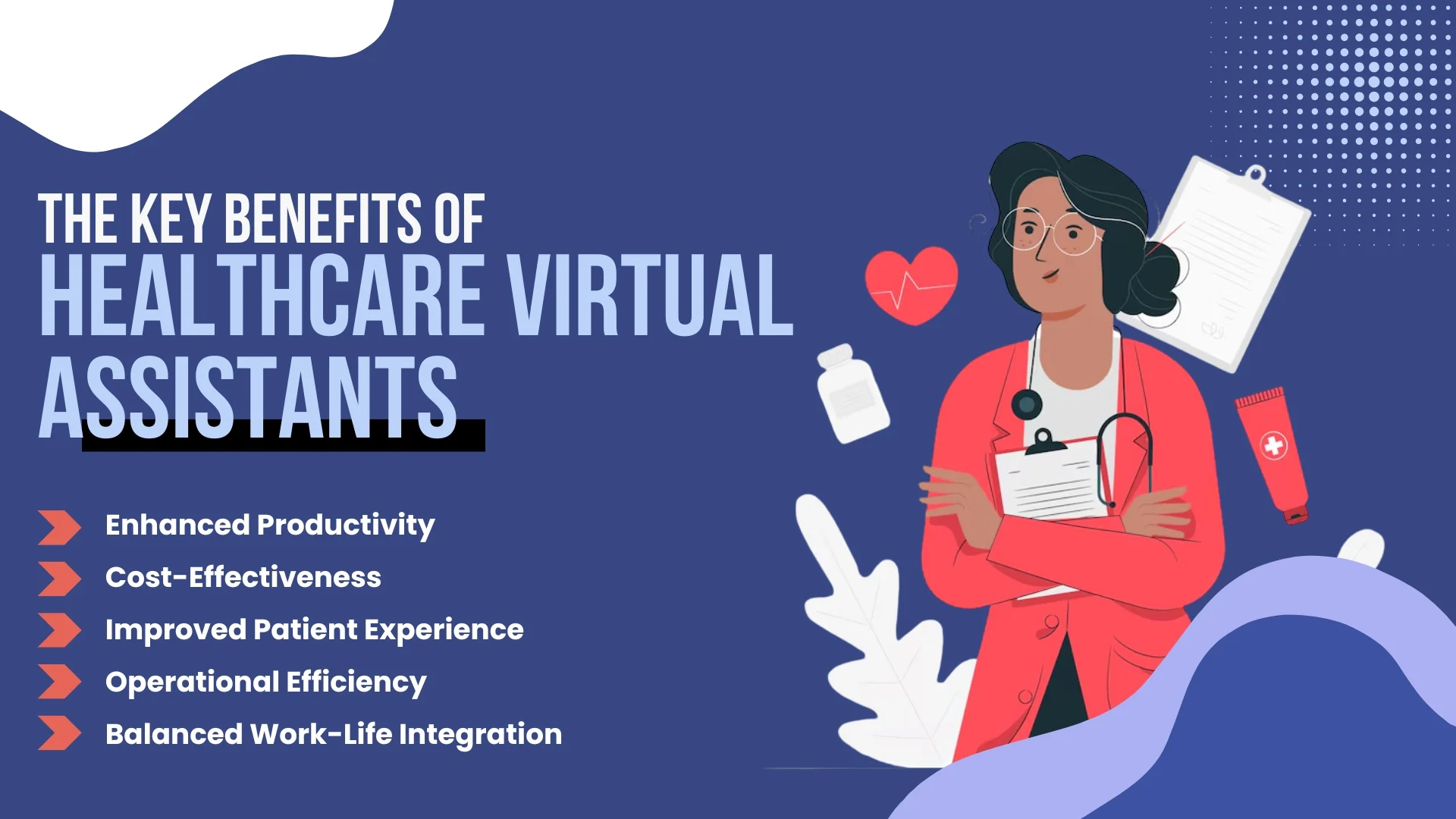
Enhanced Productivity: By offloading administrative responsibilities, you free up time to concentrate on clinical care, ultimately improving overall practice efficiency.
Cost-Effectiveness: Virtual assistants offer a more economical solution compared to hiring additional in-office staff, reducing operational costs without compromising service quality.
Improved Patient Experience: By increasing response times and ensuring accurate, efficient management of tasks, virtual assistants contribute to higher patient satisfaction.
Operational Efficiency: Streamlined processes and reduced administrative burden allow you to maintain smooth practice operations and allocate resources more effectively.
Balanced Work-Life Integration: Delegating routine tasks to a virtual assistant helps alleviate stress, allowing for a healthier balance between professional responsibilities and personal time.
By incorporating healthcare virtual assistants into your practice, you can enhance the efficiency of your operations, reduce the risk of burnout, and, most importantly, provide better care to your patients. Allow yourself the space to focus on what you do best—healing—and let virtual assistants handle the rest.
How do medical virtual assistants communicate with patients?
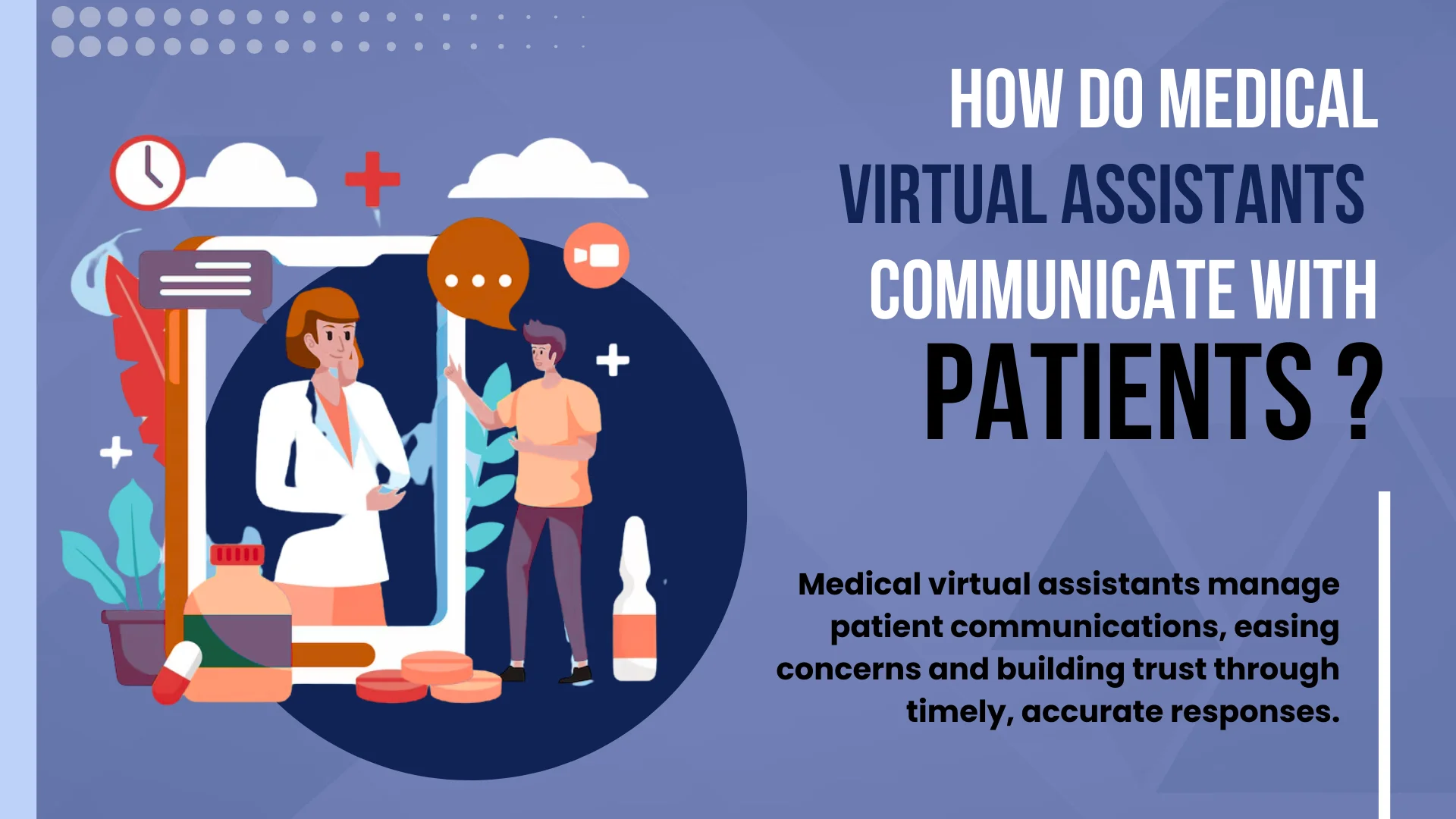
Medical virtual assistants are the first point of contact for patients. They answer calls, emails or messages and provide accurate and timely information to reduce patient anxiety and build trust. They get patient concerns addressed quickly and create a smooth flow of communication between patients and providers.
What do medical virtual assistants do with appointment scheduling?
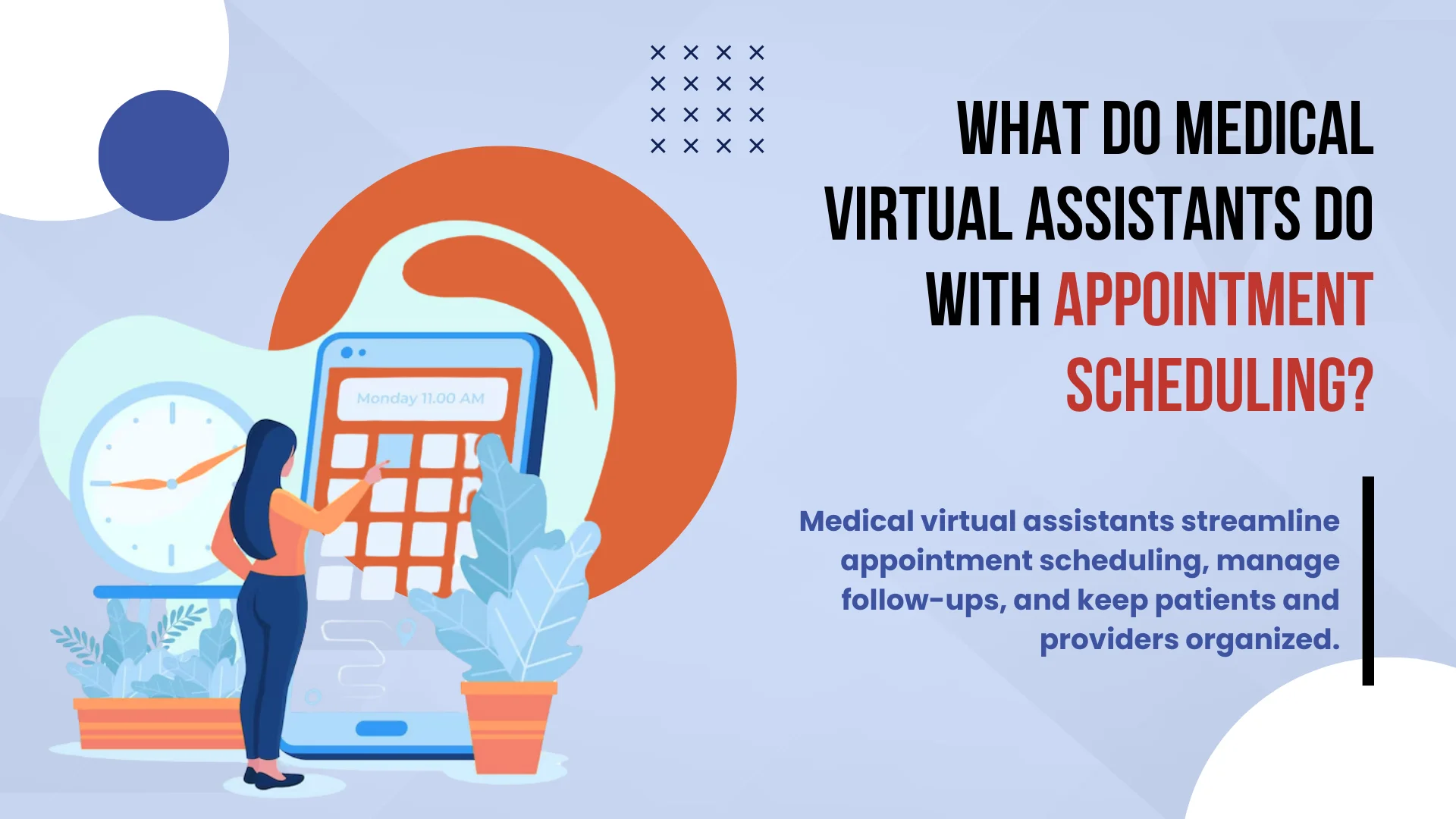
Medical virtual assistants use advanced scheduling tools and software to streamline appointment scheduling. They book, reschedule, or cancel appointments quickly and meticulously and prevent scheduling conflicts. They also coordinate patient follow-ups and send reminders so patients stay on track with their healthcare updates and providers stay organized.
How do medical virtual assistants help with billing and coding?
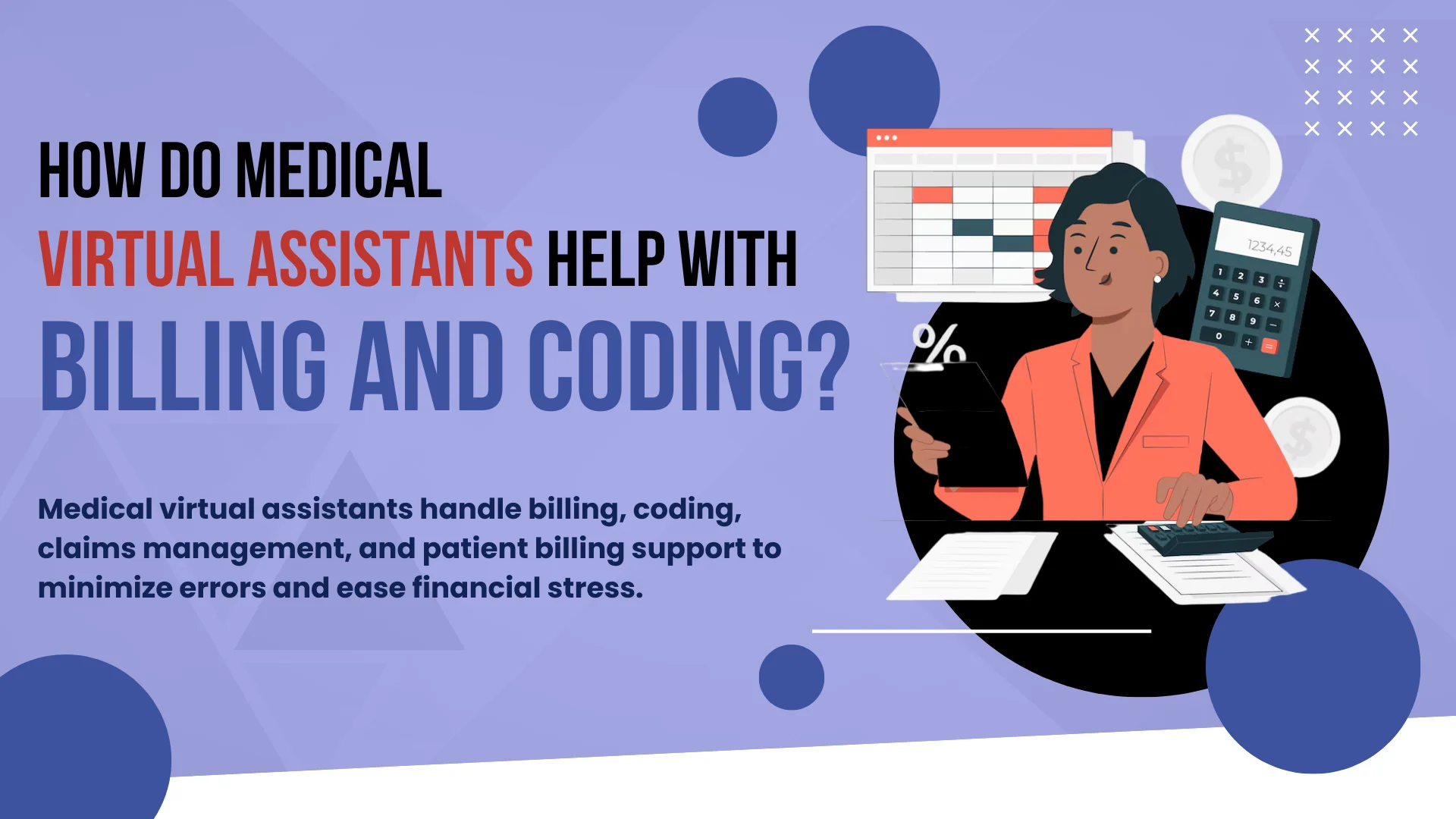
Medical virtual assistants help with billing and coding by preparing accurate insurance claims, using their knowledge of ICD and CPT codes to avoid mistakes. They submit claims electronically, track them, and address denials or rejections quickly. They also help patients by explaining billing statements, resolving payment disputes, or setting up payment plans so patients don’t have to stress about the financial side of healthcare.
What are the benefits of a medical virtual assistant for telemedicine?
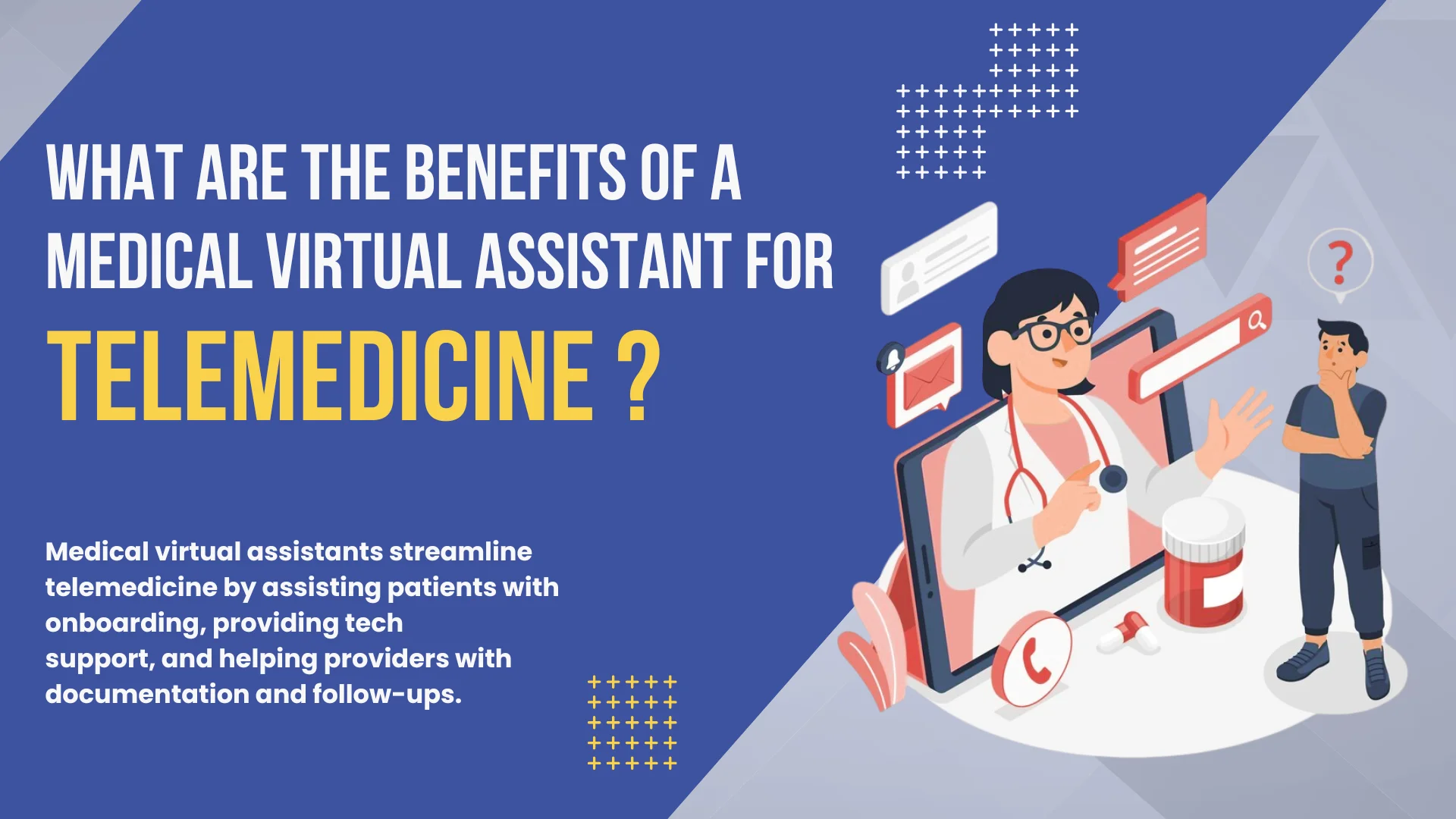
Medical virtual assistants support telemedicine by guiding patients through the signup process so they have a seamless onboarding experience. They provide technical support during virtual visits and schedule appointments for telehealth visits. They also help providers by documenting key consultation details and coordinating follow-up actions like medication refills or referrals so telemedicine is more efficient and accessible.
How do medical virtual assistants manage patient records?
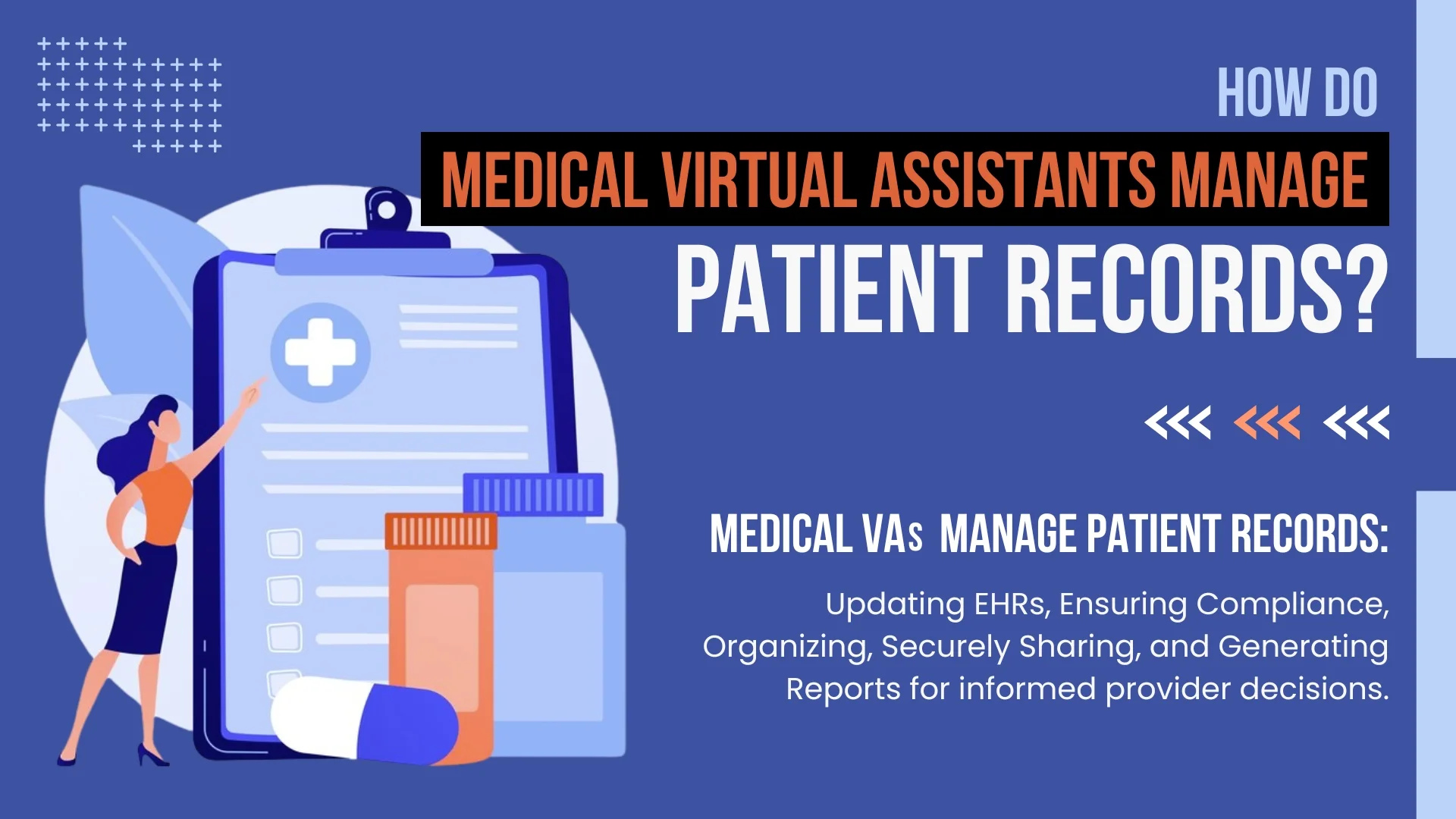
Medical virtual assistants manage patient records by updating electronic health records (EHR) with accurate and current information. They ensure HIPAA and other data compliance while organizing files for easy access. VAs also share documents securely between providers and specialists and generate reports from patient data so providers can make informed decisions.
Ultimately, your dedication to healing is your highest calling, but your work deserves the same level of care and attention. Let HVAs help shoulder the burden, allowing you to focus on your divine purpose—healing and serving those in need.



